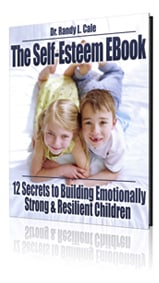Many of my parent coaching clients arrive in my office have tried many other routes to help their child. Whether it’s tantrums that have grown to the explosive level, unmotivated teens who won’t do anything, or even the disrespectful, oppositional child who seems to create problems every time you turn your back, they find years of counseling to be, at best, a band-aid. Often they have invested hundreds of hours, and home life has only eroded and the child seems more empowered. Why is that counseling is failing in these situations?
Who Is Interested In Changing?
Notice that we can ask a very simple question, and get the answer to the problem. The question: Who wants the change? In other words, who is motivated to make things better?
In most (not all) of these situations, it is Mom and Dad who want change. It’s the parents who are upset with the behavior! Mom and Dad are the ones losing sleep, reading book after book, or chasing answers online. Not the child.
“You Can Lead The Horse To Water, But You Can’t Make Them Drink.”
We all know this old saying and the wisdom it conveys. Nowhere does it remain truer than when we force our children into therapy.
We intuitively know this, as we repeatedly see that they ignore our good advice. Then, in therapy, we see that they ignore the good advice of the therapist. Again, it’s very simple: They aren’t interested in changing; thus, the good advice does not apply to them.
“It’s Your Fault. Not Mine!”
This is the internal battle cry of many children with behavioral issues. All responsibility is projected onto parents, and all good advice is deflected. It’s meaningless to them if they are not responsible for the problem. At times, this can seem incomprehensible when you just watched them cause the problem, yet somehow, they will have an excuse that absolves them of responsibility.
We must surrender trying to ‘convince’ them that they must take responsibility. Using words to get better behavior will not work. They only work when the listener is eager to absorb and use the wisdom to bring about change. This is usually not your typical acting-out, uncooperative, oppositional child. Of course, you can try using words, perhaps thinking better words are needed. Perhaps thinking more professional words will work. Yet, rarely do I find this to be true. A recent client had her child in therapy for two-and-a-half years before the therapist called it quits out of frustration and spiraling negative behavior. Yet, six weeks later (with an action-oriented game plan at home), the negative patterns are virtually gone.
Keep This Question In Mind: “Who Is Working Hardest At This?”
If you engage in therapy with your child, observe. Who works hardest in the session? Is it you? The therapist asks countless questions, offering ongoing advice while the child or adolescent seems, at best, mildly attentive. Who walks out with tasks to do, and does them?
The same question will serve you at home. In any repeated situations, notice who is working harder at their happiness, their success, or their becoming responsible. When you do so, you will see that this formula will not work, and we must find a way to shift responsibility to the child for their actions. This will be the key to success, both at home and in therapy.
















